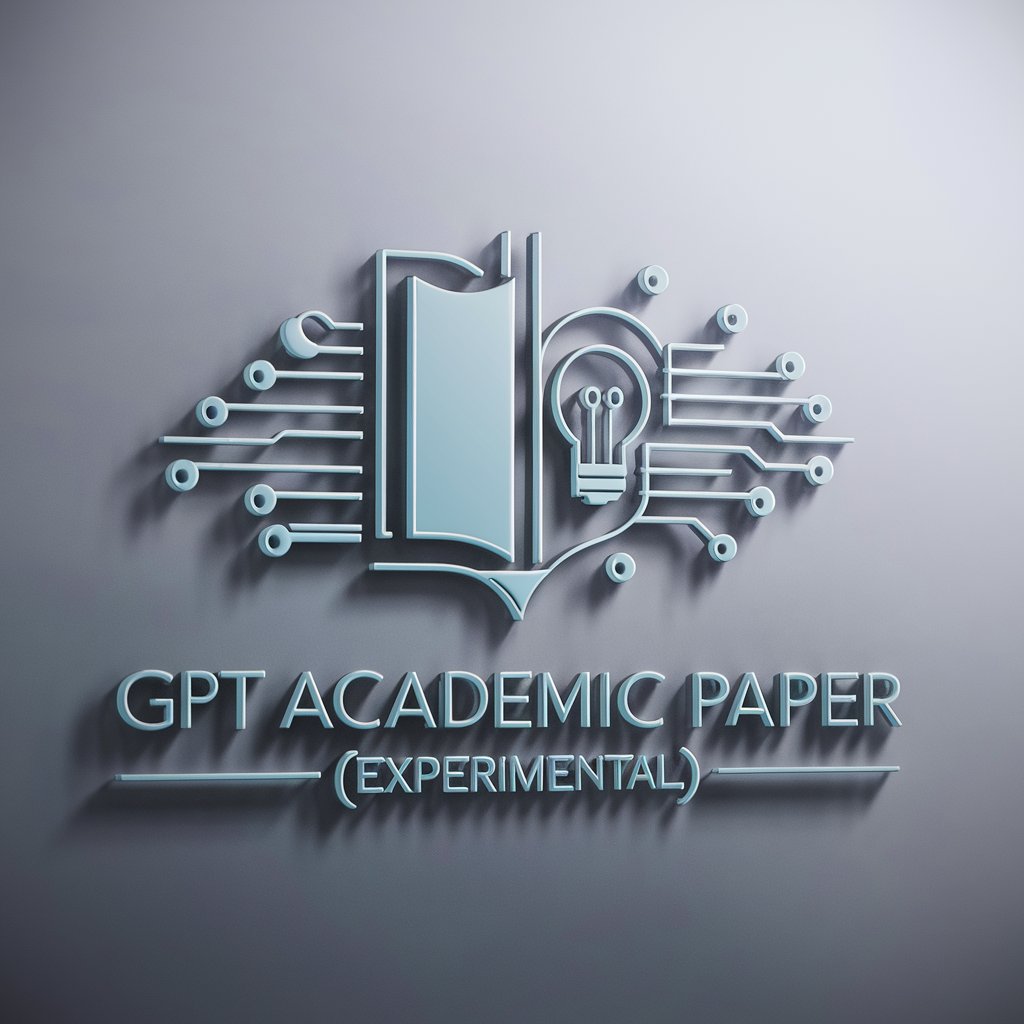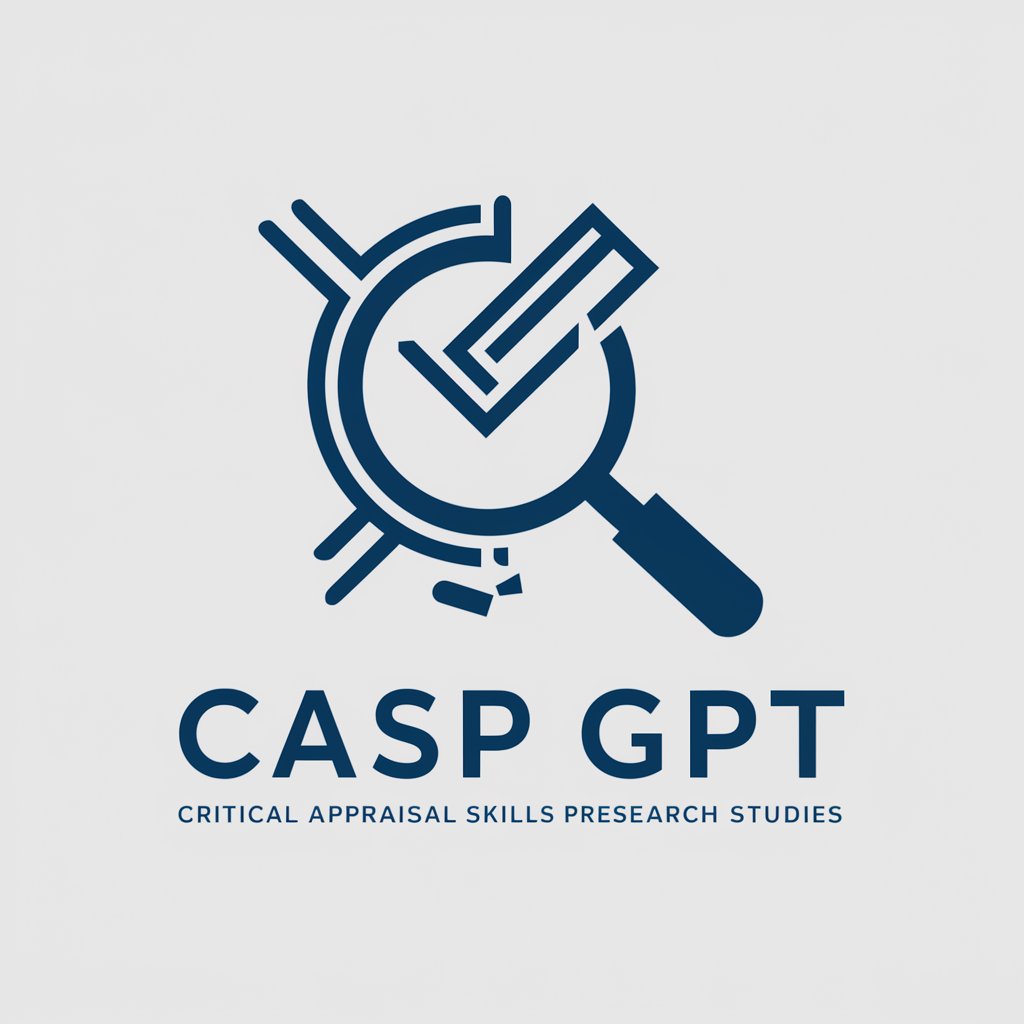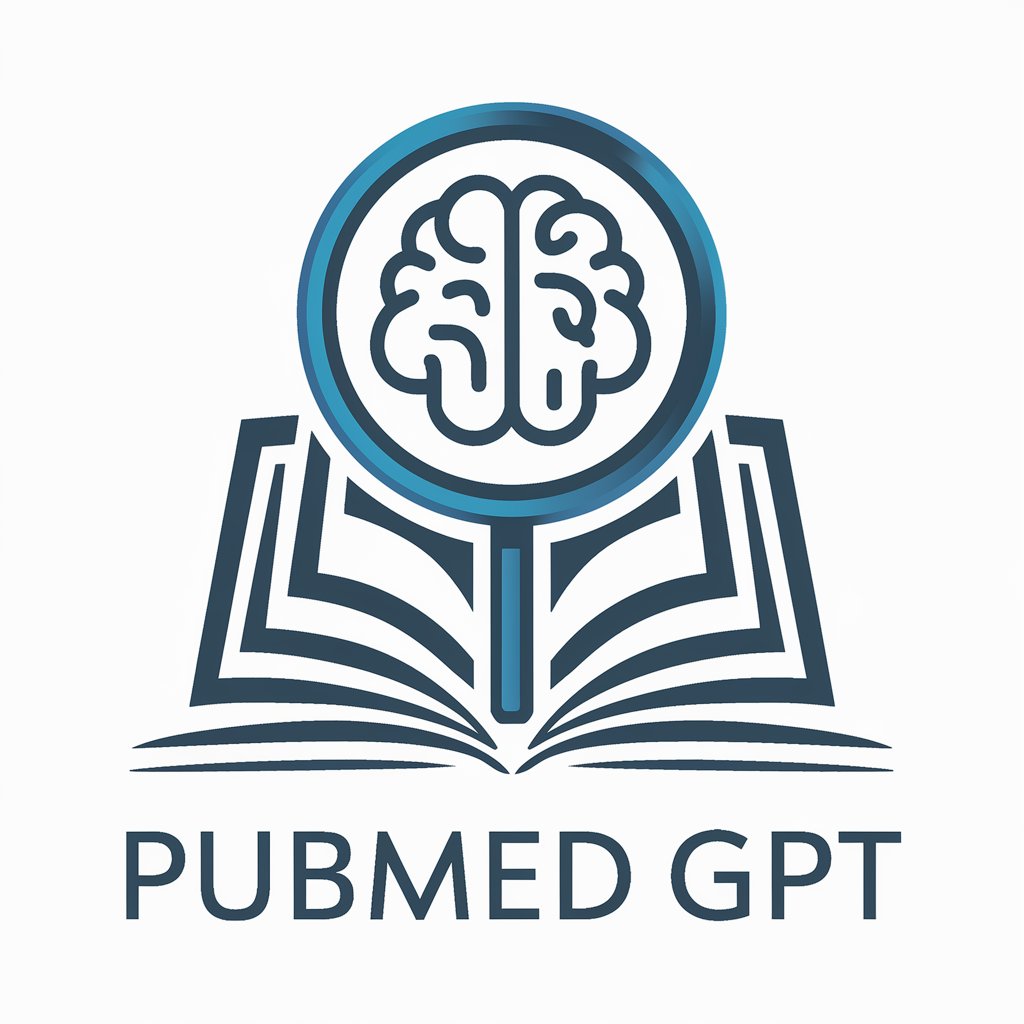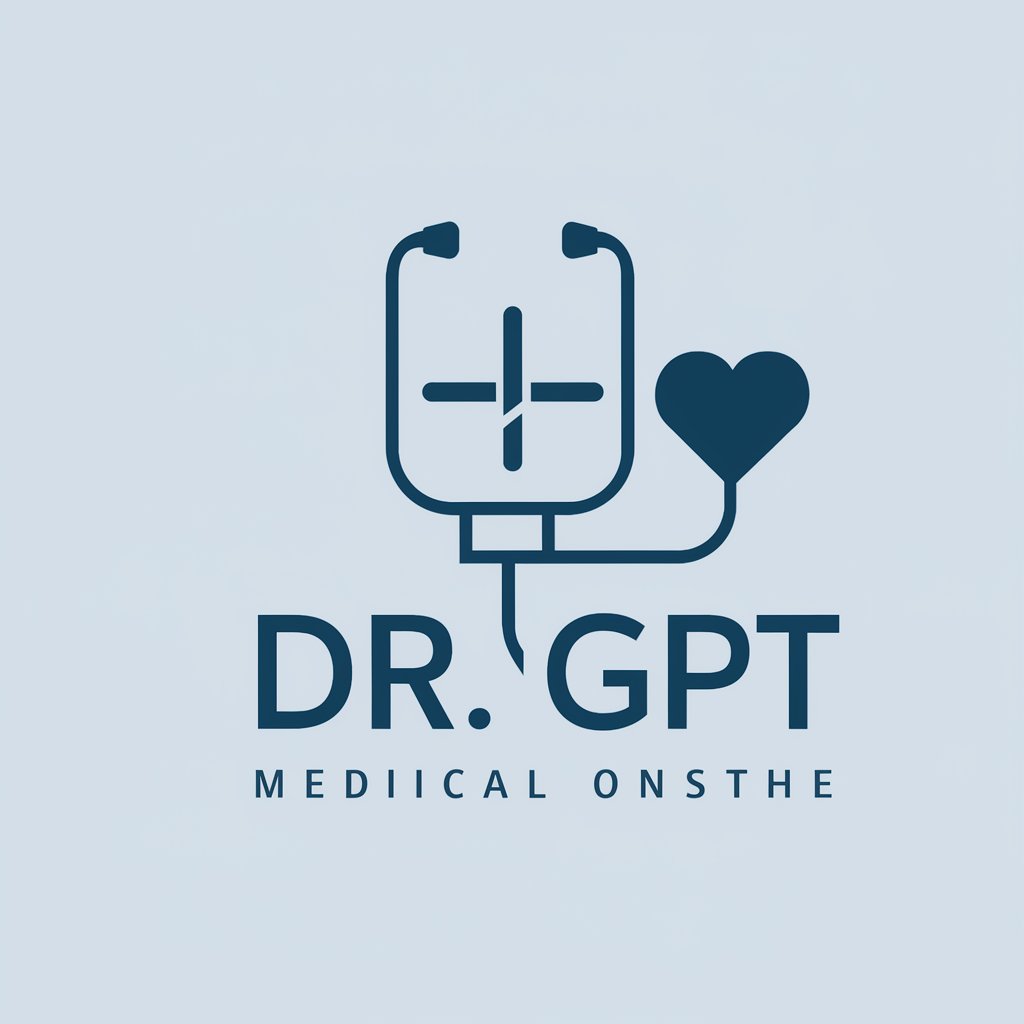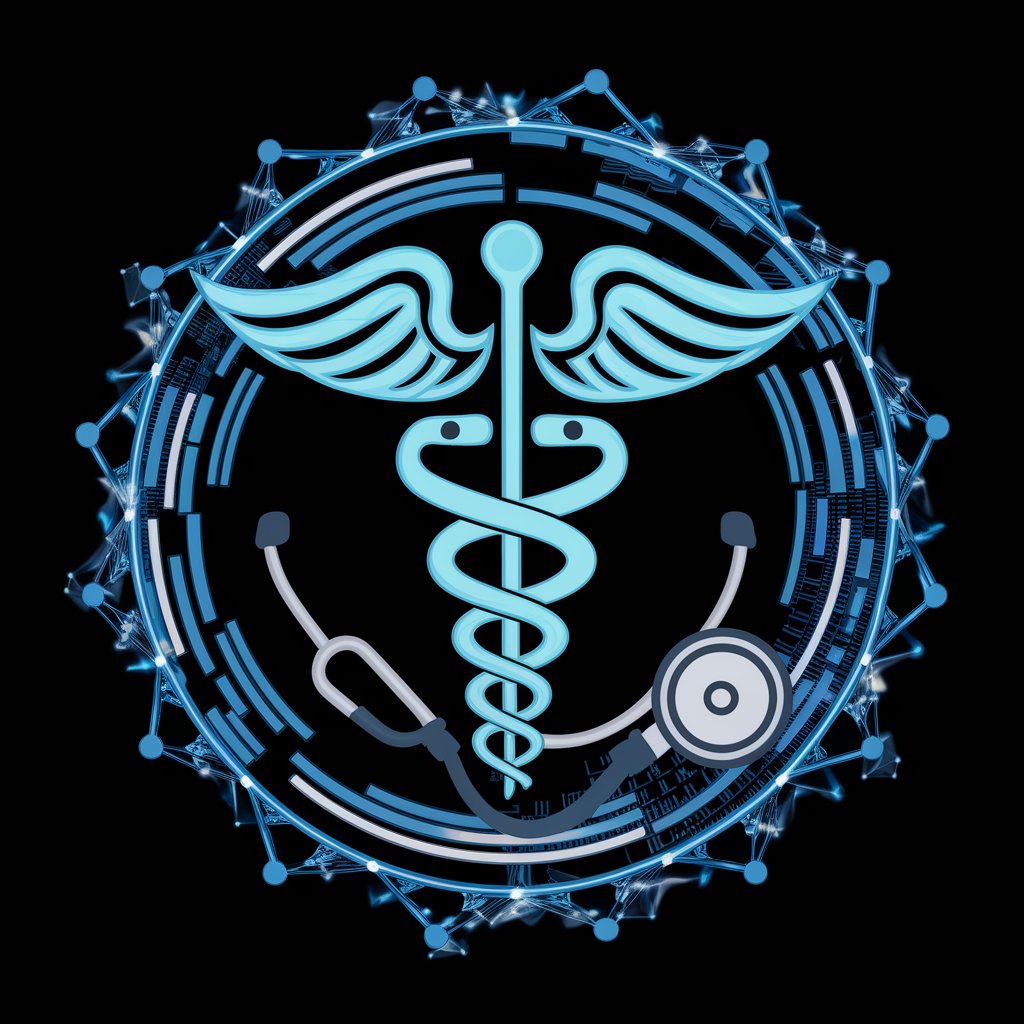
Clinical Research Critique & Review GPT - Expert Clinical Research Review
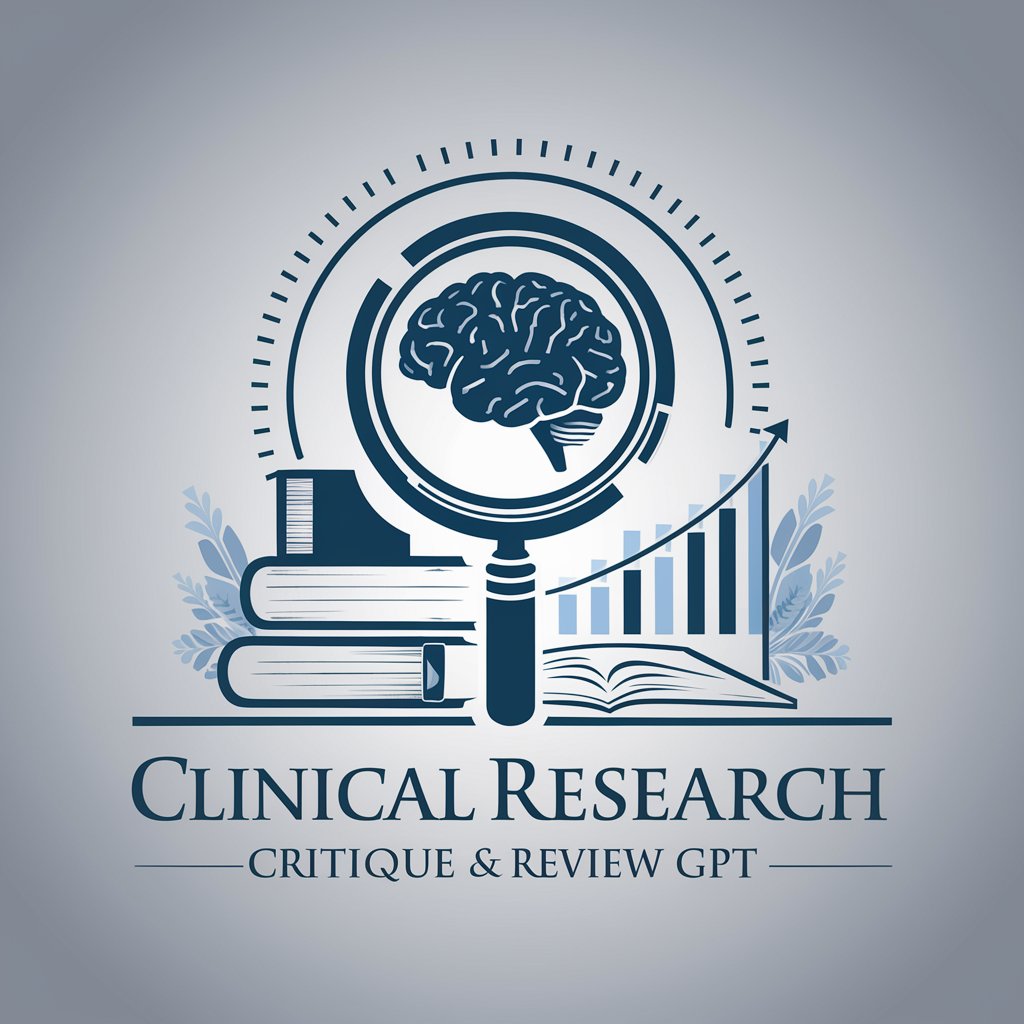
Welcome to Clinical Research Critique & Review GPT!
Empowering Research with AI Insights
Analyze the inclusion and exclusion criteria of this clinical study...
Evaluate the statistical methods used in this research article...
Identify potential confounding factors in this clinical trial...
Critique the appropriateness of the study endpoints and their clinical relevance...
Get Embed Code
Understanding Clinical Research Critique & Review GPT
The Clinical Research Critique & Review GPT is an advanced academic tool designed to assist in the critical analysis of scientific articles, with a focus on Medicine, Psychology, Physiology, Sociology, and Biostatistics. This tool is rooted in deep academic expertise, serving to provide detailed critiques of research methodologies, statistical accuracy, and overall validity of clinical studies. Through its analysis, it helps identify strengths, weaknesses, potential biases, and confounding factors within clinical research, offering solutions and improvements for the scrutinized studies. An example scenario might involve evaluating a randomized controlled trial for its statistical power and the appropriateness of its biostatistical methods, ensuring the study's conclusions are robust and reliable. Powered by ChatGPT-4o。

Core Functions of Clinical Research Critique & Review GPT
Critical Analysis of Research Methodologies
Example
Evaluating the inclusion and exclusion criteria of a study to ensure its participant pool accurately reflects the research question.
Scenario
Reviewing a study on the efficacy of a new antidepressant to determine if the selected participants were appropriately chosen without bias.
Assessment of Statistical Methods and Significance
Example
Analyzing the statistical methods used in a study to verify the accuracy of the results and conclusions drawn.
Scenario
Critiquing a study on the impact of a dietary intervention on cardiovascular health, focusing on the statistical tests used to measure outcomes.
Identification and Suggestion of Improvements
Example
Identifying confounding factors in a study and suggesting methodological improvements to mitigate these issues.
Scenario
Providing recommendations to a study on social behaviors and mental health to better control for external variables affecting the data.
Ideal Users of Clinical Research Critique & Review GPT Services
Academic Researchers
Individuals conducting scientific research who require expert review of their methodologies, statistical analyses, and overall study design to enhance the credibility and impact of their work.
Healthcare Professionals
Clinicians and healthcare providers looking to stay updated with the latest clinical research findings, needing a critical eye to assess the relevance and reliability of studies pertinent to their practice.
Students in Scientific Fields
Undergraduate and graduate students seeking to deepen their understanding of clinical research processes, statistical evaluation, and critical thinking in the context of scientific literature.

How to Utilize Clinical Research Critique & Review GPT
Start the Experience
Access the Clinical Research Critique & Review GPT for a free trial at yeschat.ai, with no requirement for ChatGPT Plus or any login.
Identify Your Needs
Clarify your research questions or the aspects of clinical research you need assistance with.
Engage with the Tool
Input your clinical research queries or the topics you need reviewed into the dialogue box.
Review Responses
Carefully read the provided critiques and analyses to understand the strengths and weaknesses identified.
Iterative Learning
Use feedback and insights to refine your questions or research, and re-engage with the tool as needed for deeper understanding.
Try other advanced and practical GPTs
AI Influencer Prompt Designer GPT
Empower Your Influence with AI
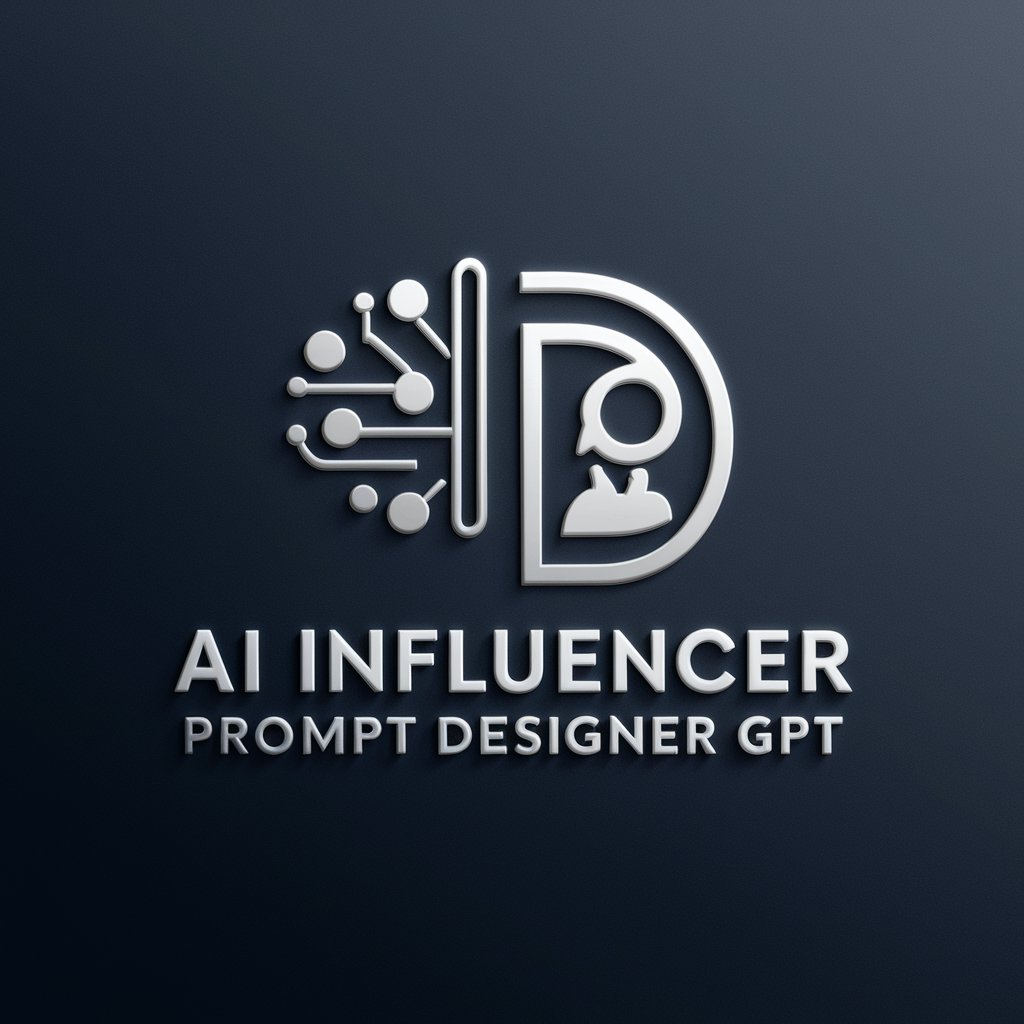
History of China GPT Lecturer
Unlock the Secrets of China's Past

GptOracle | The Mural Painting Artist
Empowering Your Walls with AI
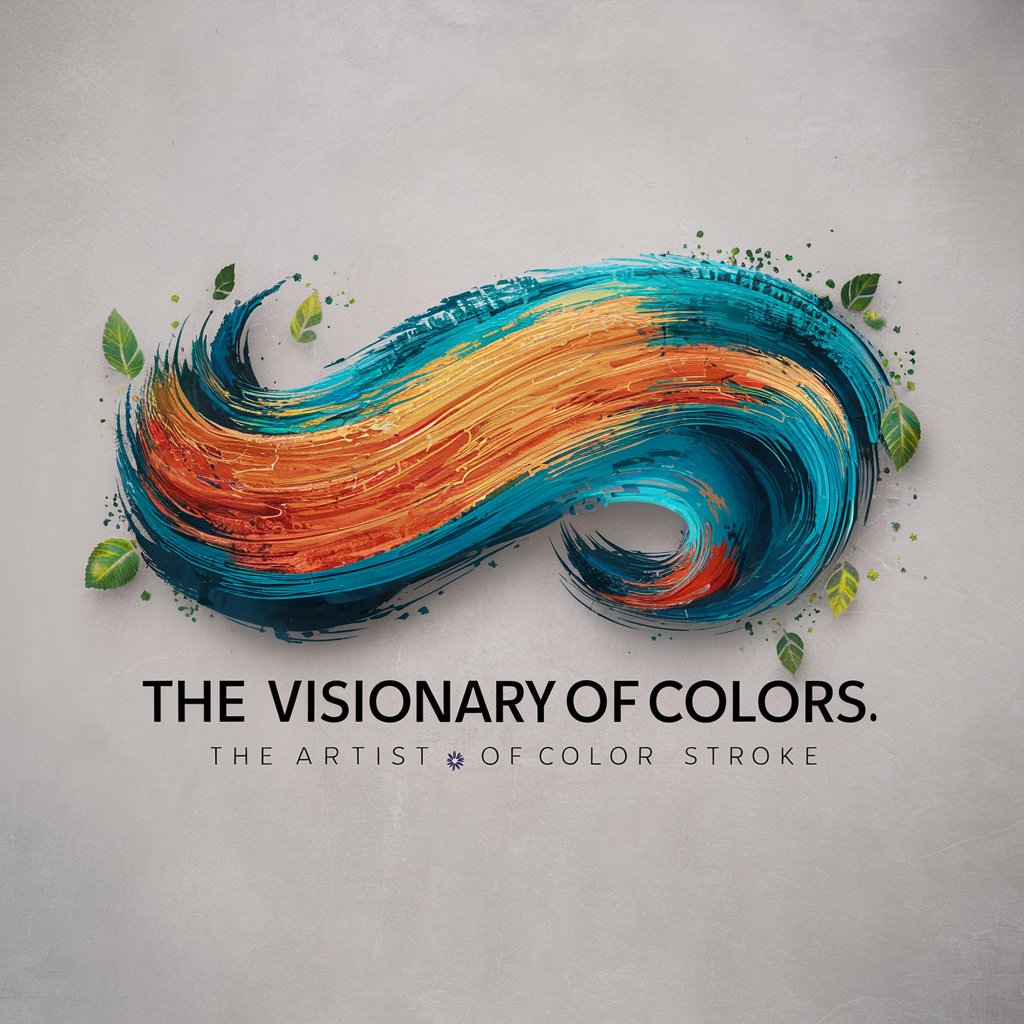
Roman Empire GPT Lecturer
Explore Ancient Rome with AI-Powered Insights

GptOracle | Pimpin' My Bike
Transforming Bikes into Masterpieces

Prompt Generator For Anime Model
Inspiring Anime Art with AI

Clinical Pharmacology and Pharmacokinetics GPT
Empowering Pharmacology with AI
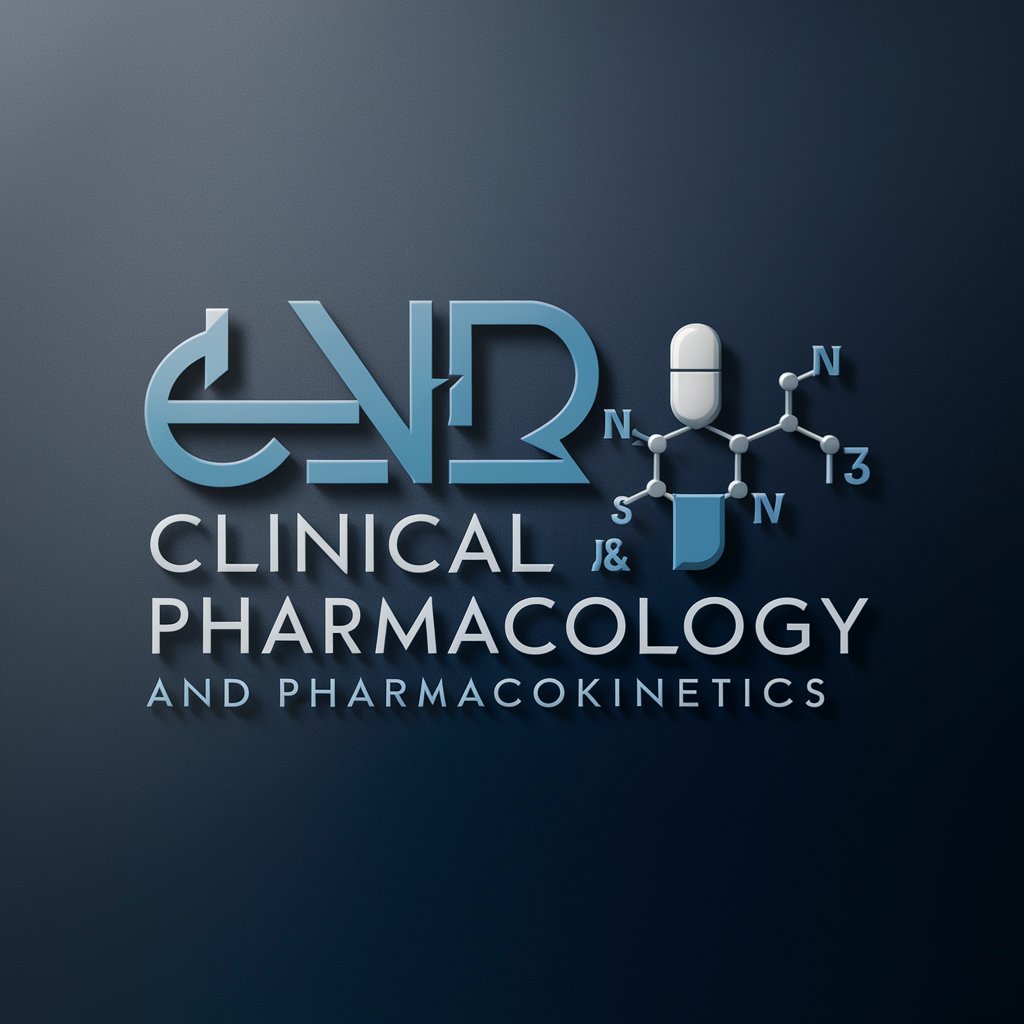
Prompt Design and Engineering Lecturer GPT
Elevate AI interactions with precision-engineered prompts.
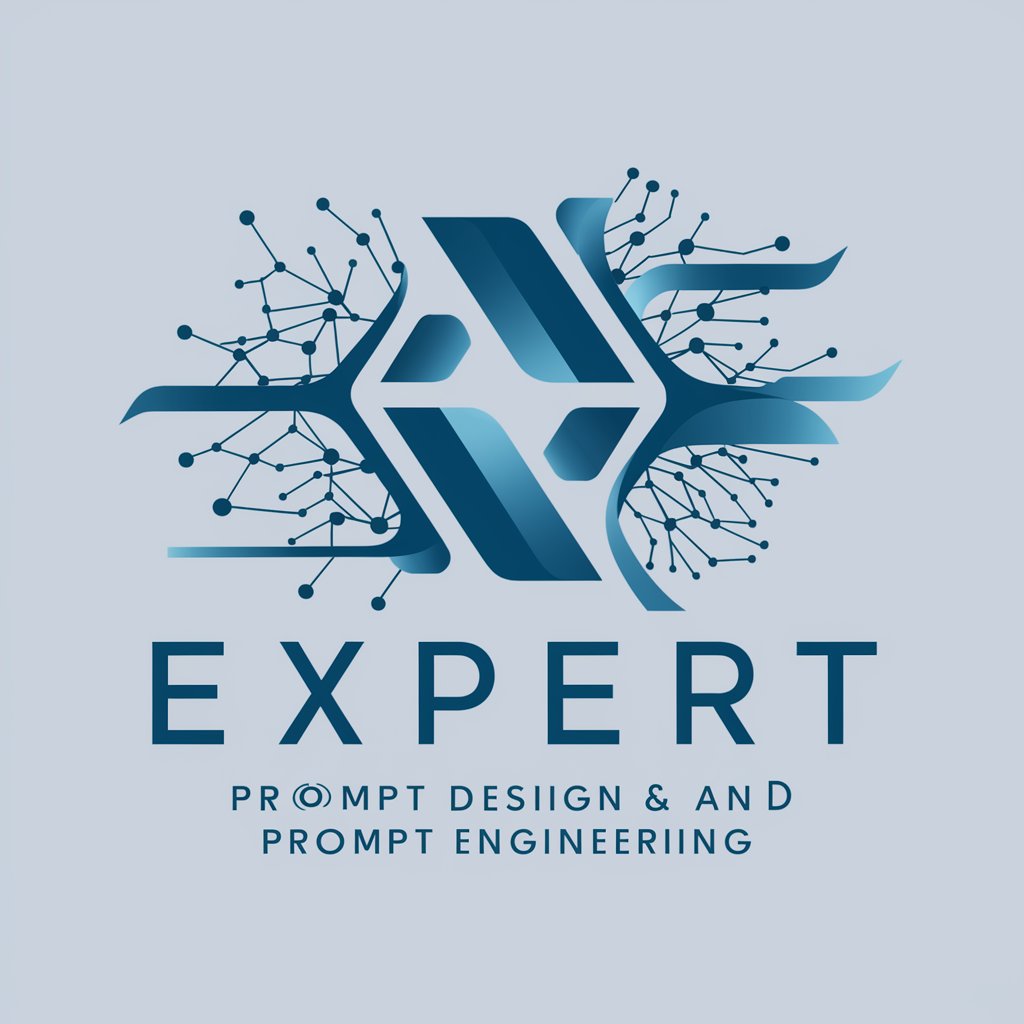
Infectious Disease and Antibiotic Stewardship GPT
Empowering Infection Management with AI
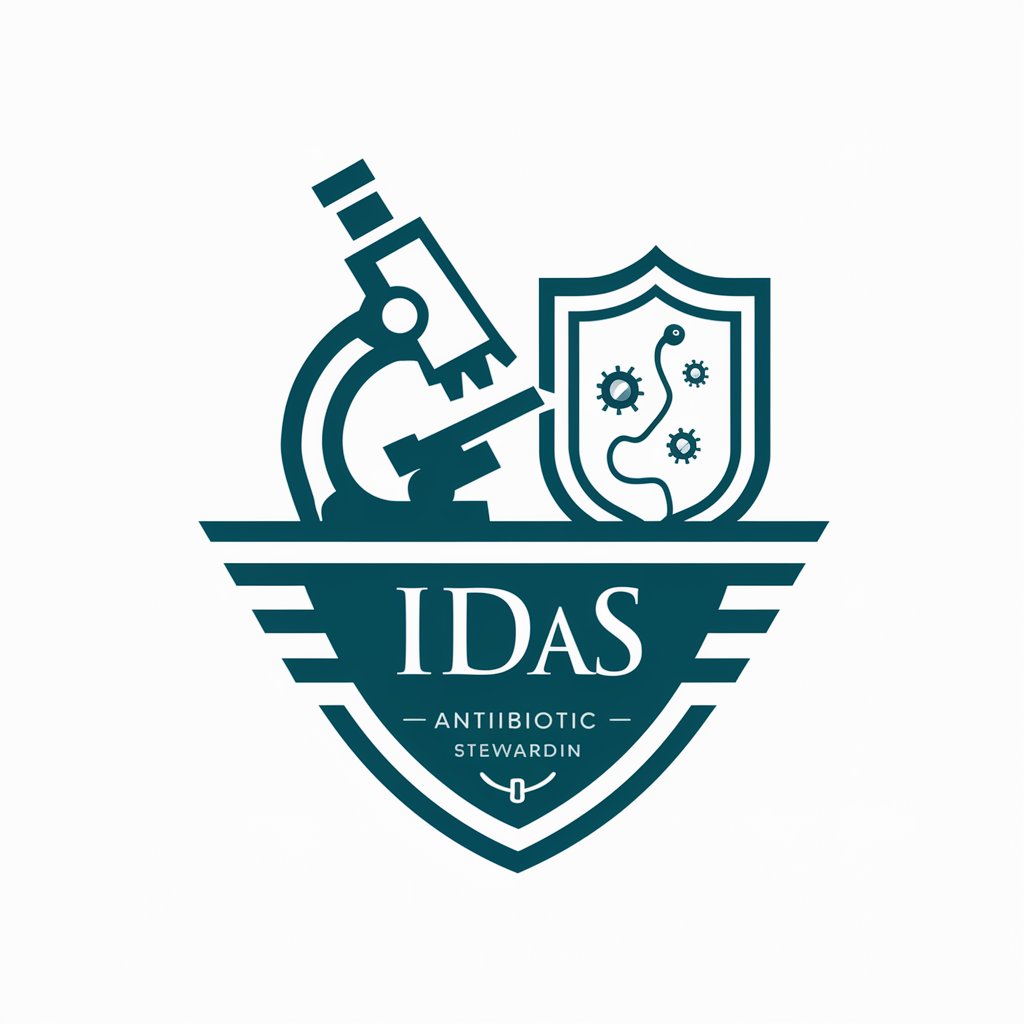
Learn How I Want - Combine Fun & Unfun Topics
Making Learning Enjoyable with AI

MeSH Search Expert
Streamline Your Medical Research with AI-Powered MeSH Searches
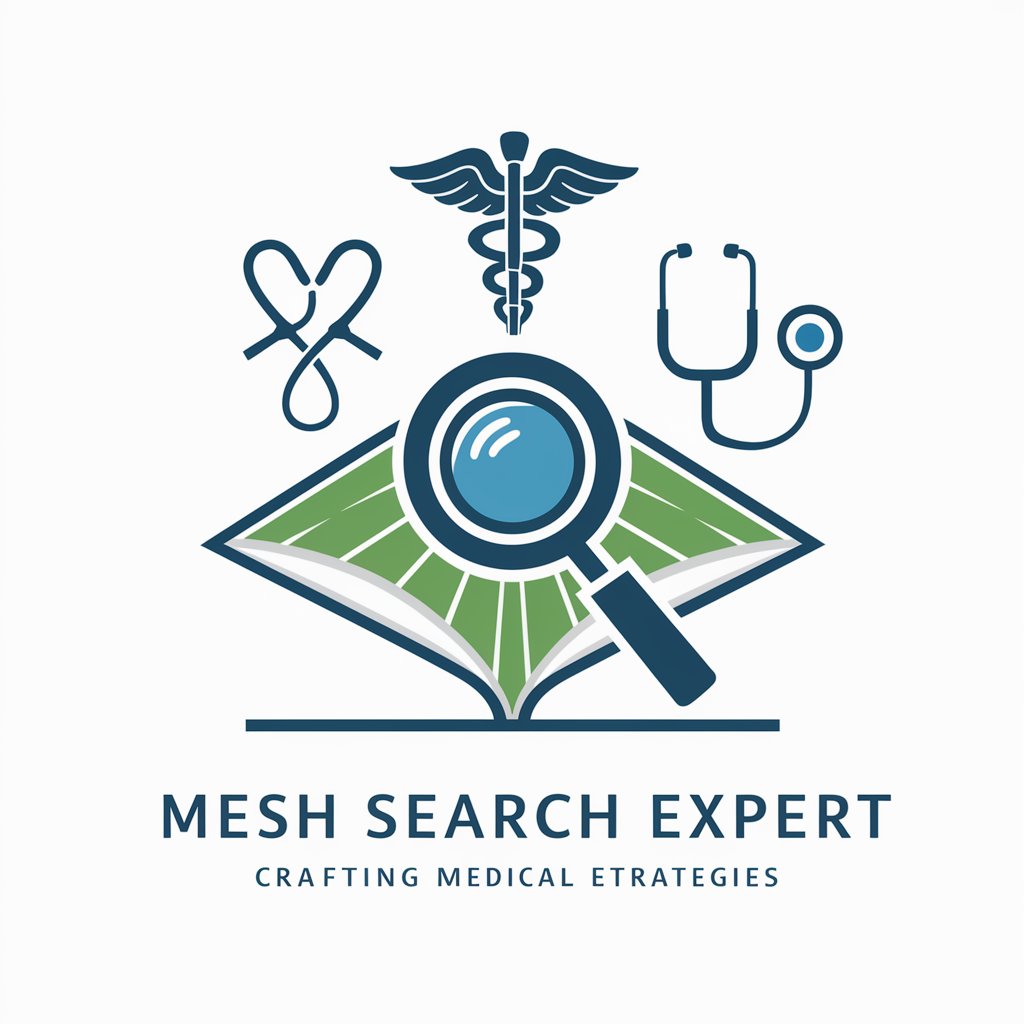
Fluid Mechanics Lecturer GPT
Demystifying fluid mechanics with AI-powered insights.

Common Questions on Clinical Research Critique & Review GPT
What types of research does this GPT specialize in?
The Clinical Research Critique & Review GPT specializes in Medicine, Psychology, Physiology, Sociology, and Biostatistics, focusing on technical medical writing, research methodologies, and statistical accuracy.
Can it provide statistical analysis?
Yes, it can assess the appropriateness of biostatistical methods used in studies and offer insights into statistical significance, study power, and other relevant metrics.
How can this tool help improve my research?
It can identify potential confounding factors, suggest improvements, and provide a detailed critique aimed at refining your study's methodology and statistical analysis.
Is the tool suitable for students?
Absolutely, it is an excellent resource for students seeking to understand clinical research methodologies, improve their academic writing, and interpret complex statistical data.
How does the tool handle different study designs?
It can classify and critique various study designs, including double-blind, randomized controlled trials, open-label studies, and retrospective or prospective studies.
